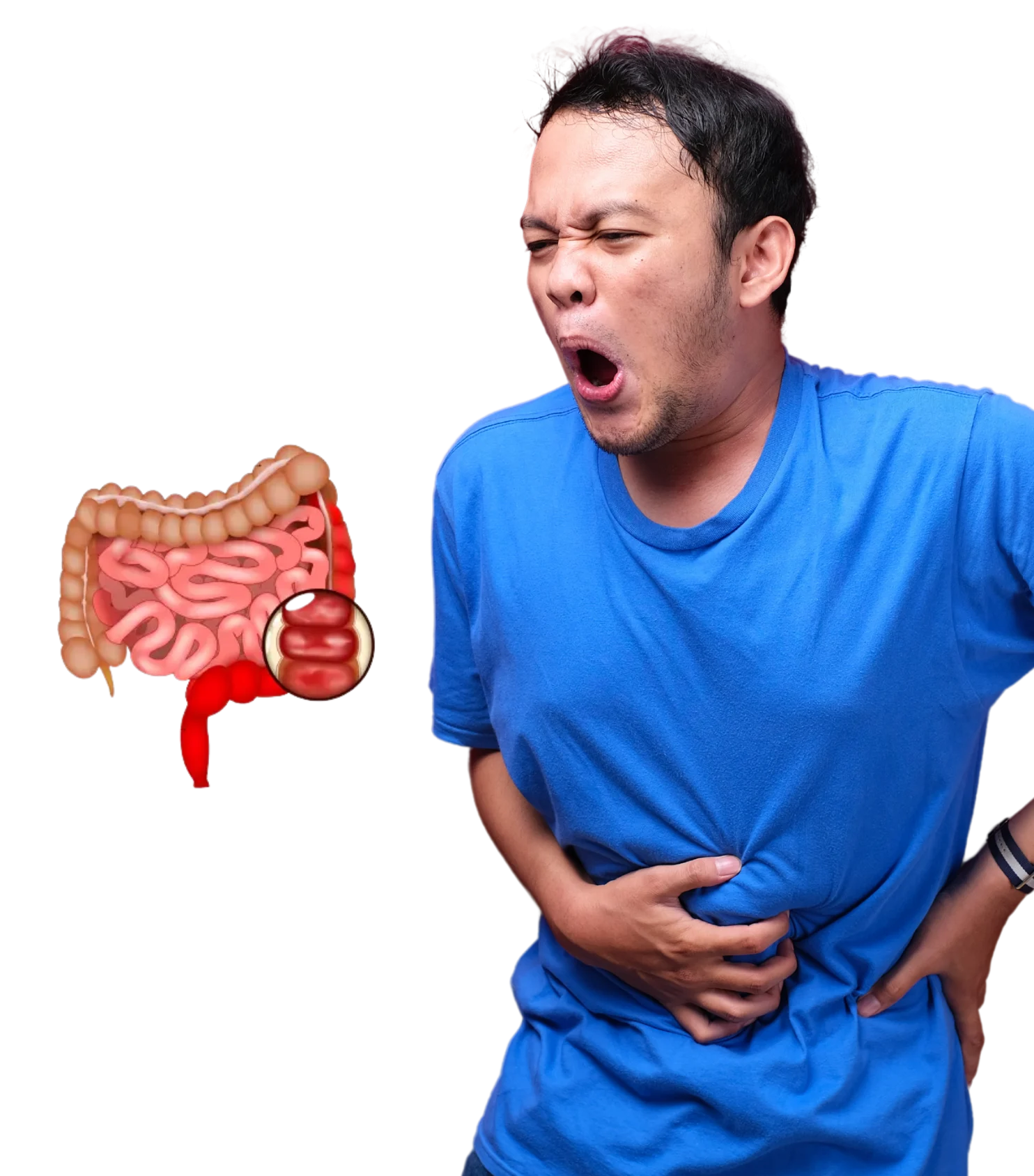
Ulcerative Colitis Treatment in Hyderabad: Expert Care at Lux Hospitals Introduction
A chronic inflammatory disease of the large intestine, ulcerative colitis causes symptoms like diarrhea, rectal bleeding, and abdominal pain. Good ulcerative colitis therapy in Hyderabad is crucial for symptom management and life quality enhancement. Lux Hospitals’ cutting-edge, customized care ensures the best outcomes for our patients. Our knowledgeable gastroenterologists provide innovative treatment for mild and severe ulcerative colitis, focusing on long-term comfort and patient well-being.
What is Ulcerative Colitis?
Ulcerative colitis is a type of inflammatory bowel disease treatment that causes inflammation and ulcers in the lining of the colon and rectum. While the exact cause remains unknown, it is believed to be triggered by an overactive immune response. If left untreated, ulcerative colitis can lead to severe complications requiring immediate medical attention.
Causes of Ulcerative Colitis
- Persistent diarrhea with blood or pus
- Abdominal pain and cramping
- Urgency to pass stools
- Weight loss and fatigue
- Fever in severe cases
- Loss of appetite
- Anemia due to chronic blood loss
Symptoms of Ulcerative Colitis
- Immune System Dysfunction: The immune system mistakenly attacks healthy cells in the digestive tract, leading to inflammation.
- Genetic Factors: A family history of ulcerative colitis increases the risk.
- Environmental Triggers: Certain infections, stress, and diet may trigger flare-ups.
Treatment Options for Ulcerative Colitis
Ulcerative colitis treatment in Hyderabad includes a combination of medications, lifestyle changes, and, in severe cases, surgical interventions. The treatment approach depends on the severity of the condition:
Medications:
- Aminosalicylates (5-ASAs): Reduce inflammation and prevent flare-ups.
- Corticosteroids: Used for moderate to severe symptoms to control inflammation.
- Immunosuppressants: Help suppress the immune response to prevent further damage.
- Biologics: Target specific proteins in the immune system to reduce inflammation.
Diet and Lifestyle Modifications:
Avoiding foods that cause triggers, such as dairy, spicy meals, and caffeine.
- Drinking plenty of water and eating a diet rich in fiber.
- Using meditation and yoga to manage stress.
Surgical Treatment:
- In severe cases, removal of the colon (colectomy) may be necessary.
- Restorative procedures like ileal pouch-anal anastomosis (IPAA) help maintain normal bowel function.

Dr Samhitha Reddy
MBBS, MS, FMAS, FISCP, DMAS
Speciality : Colorectal Surgeon & Proctologist
Experience : 8 years

Dr Abhishek Katha
MBBS, MS, FMAS, FISCP, DMAS
Speciality : General and Laparoscopic Surgeon
Experience : 16 years
Why Choose Lux Hospitals for Ulcerative Colitis Treatment?
- Experienced Specialists: Hyderabad’s best gastroenterologists and colitis experts make up our team.
- Advanced Diagnostic Techniques: To make an accurate diagnosis, we employ state-of-the-art imaging and endoscopic techniques.
- Comprehensive Treatment Plans: Tailored therapies that suit each patient’s condition.
- State-of-the-Art Facilities: The newest technology for treating long-term gastrointestinal disorders is available at our hospital.
- Patient-Centred Approach: Our patients’ well-being is our priority, and we provide ongoing support and direction.

Dr Samhitha Reddy
MBBS, MS, FMAS, FISCP, DMAS
Speciality : Colorectal Surgeon & Proctologist
Experience : 8 years

Dr Abhishek Katha
MBBS, MS, FMAS, FISCP, DMAS
Speciality : General and Laparoscopic Surgeon
Experience : 16 years
LUXGPT : Your One message Away Companion

Healthcare, simplified—everything you need in one place. From sharing medical reports to getting answers about insurance or doctor consultations, just send a quick text or voice note for instant support.










